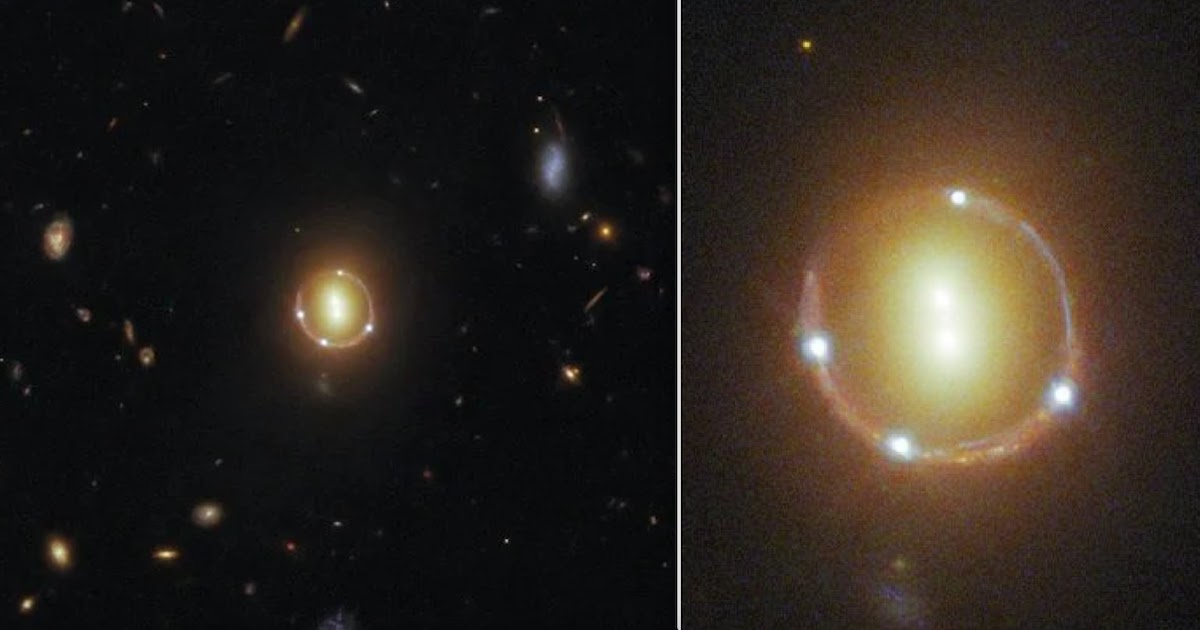
A new release from the Hubble Space Telescope has illustrated a gravitational lensing, an effect predicted by Einstein.
Gravitational lensings are caused when gravity warps space-time and enables us to see objects so distant that would otherwise be invisible.
The illustration highlights a shiny ring-like structure with four spots threaded along with it which loop around two more points, emitting a golden glow.
The illustrated effect of the gravitational lensing is called an 'Einstein ring', with the bright dots representing three galaxies. Two of the galaxies stand in the middle of the ring, while one quasar stands in the background, whose light is distorted and magnified as it passes through the gravitational field of the other two galaxies.
Due to the mass of the two galaxies standing in the foreground being incredibly high, a gravitational curvature of space-time around them is observed. This results in any light traveling through this part of space-time following the curvature and entering the telescopes in a smeared and magnified illustration.
This serves as a useful tool to probe the far and near reaches of the Universe. Since any object with a large enough mass acts as a gravitational lens, one or more galaxies, even galaxy clusters are able to produce this pattern of light.
Replication of the images captured from the telescope allows astronomers to observe the distant galaxies in much finer detail. The curvature of the gravitational field determines the strength of the magnifying lens.
As such, gravitational lenses allow to measure galaxies and galaxy clusters alike, which in turn assists scientists in mapping dark matter.
When gravitational lensing (or microlensing) occurs in objects closer to Earth, astronomers are able to detect objects within our galaxy which would otherwise be too dark to observe, like stellar-mass black holes. Through microlensing, astronomers have even managed to detect rogue exoplanets, planets unattached from the host star, which wander alone in space.
[h/t: Science Alert]













COMMENTS